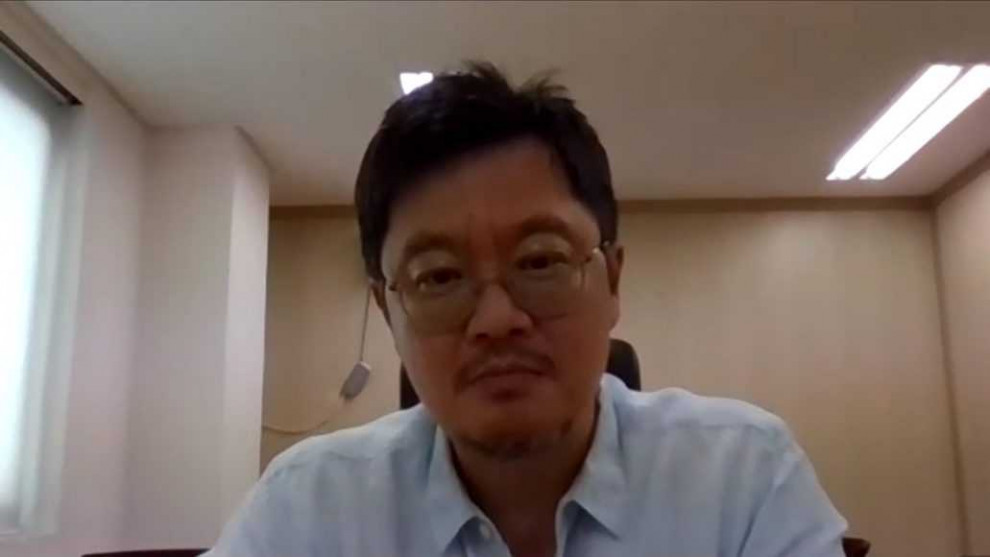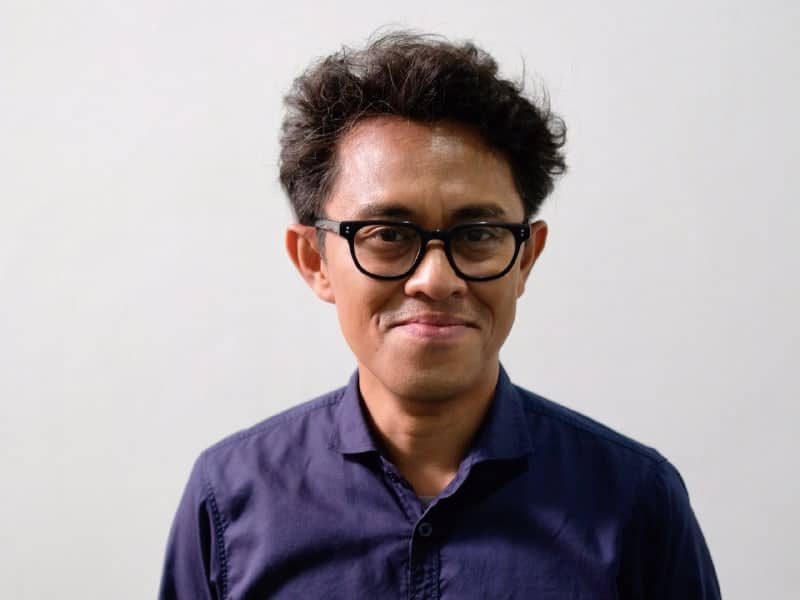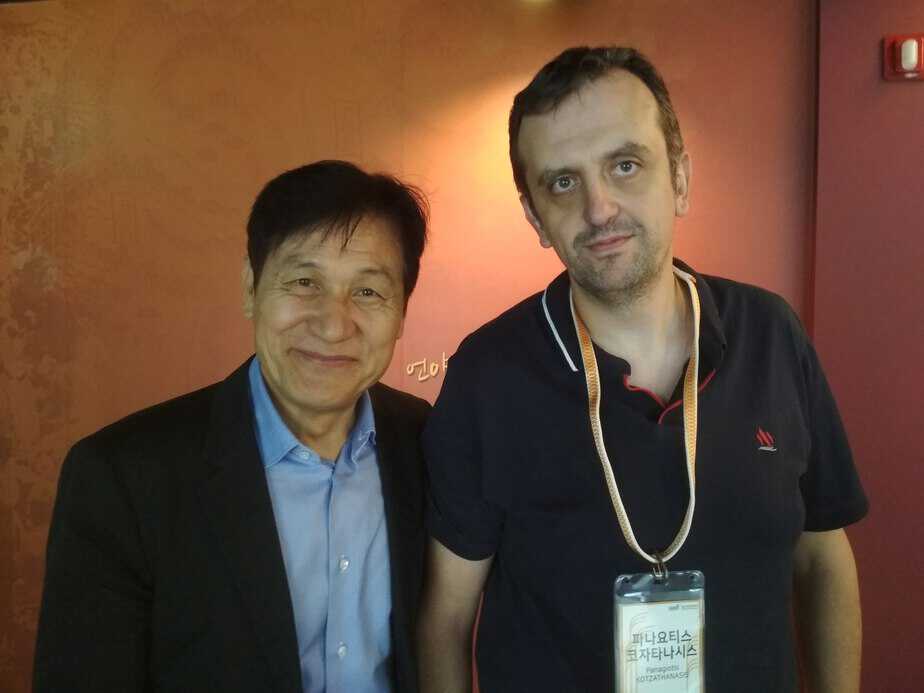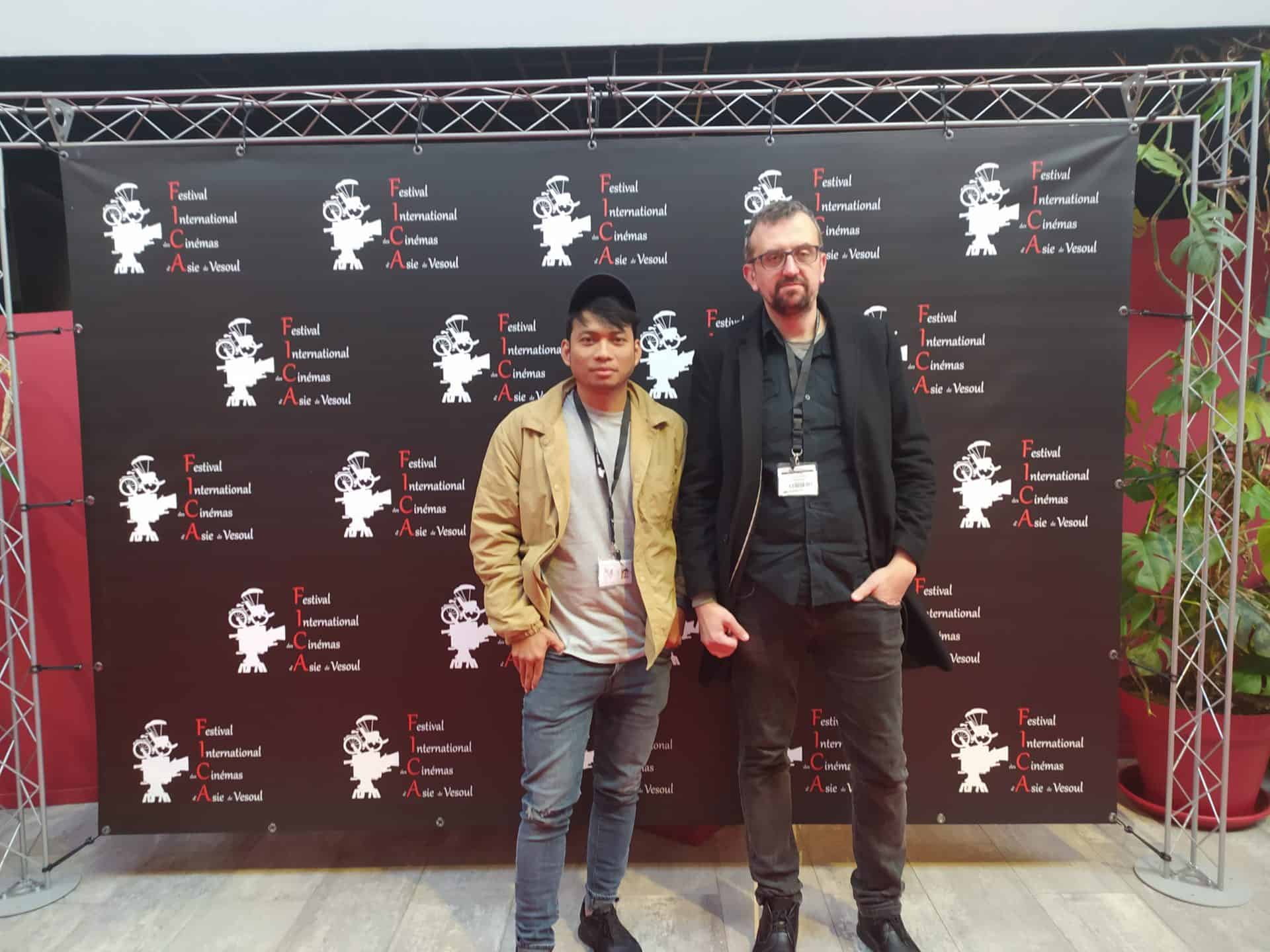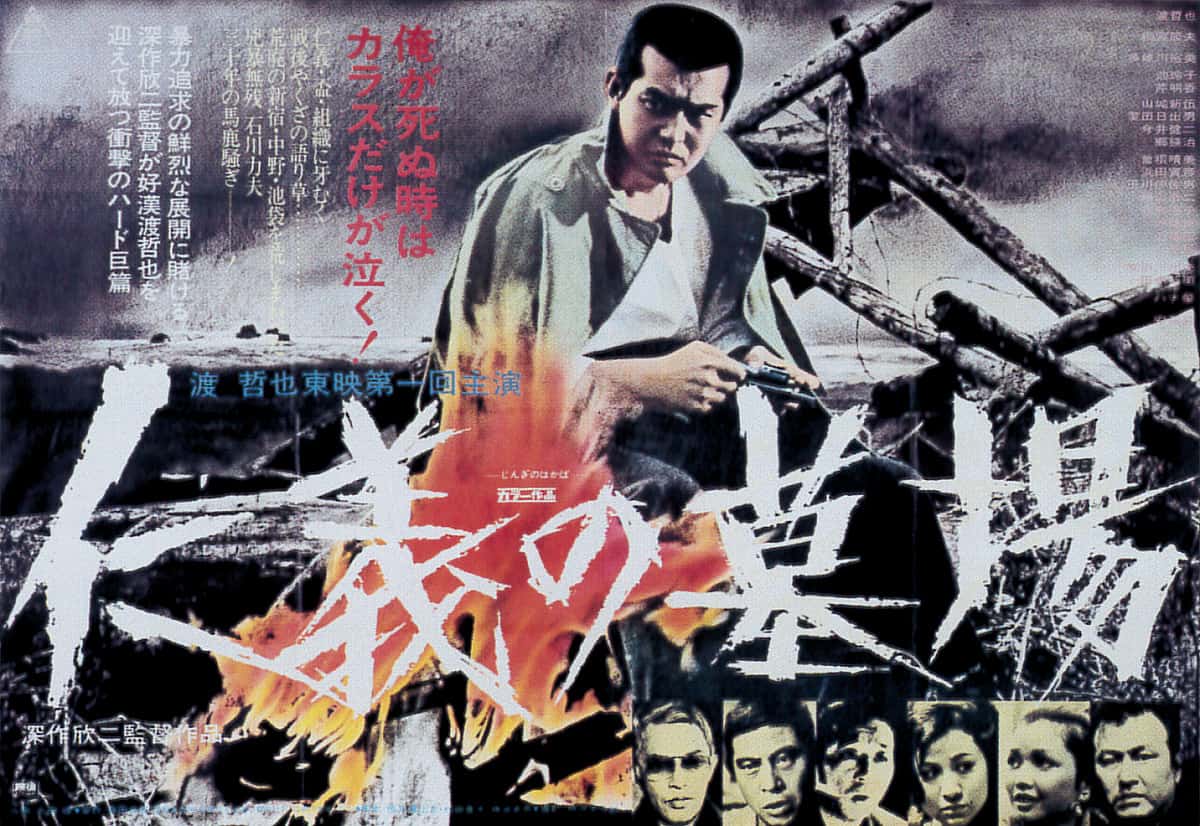Woo Min-ho graduated from Chung-Ang University in film before studying abroad at the University of London's Goldsmith College, where he made his first short film “Who Killed Jesus?” in 2000. Though the short won Woo his first award at the Seoul International Agape Film Festival, he would not go on making films until a decade later, when he released his feature debut “Man Of Vendetta”. “The Spies” followed in 2012, but it wasn't until “Inside Men” three years later that Woo broke out. The film, based on a web toon, was a political thriller starring Lee Byung-hun and won Best Film at both the Blue Dragon Awards and the Grand Bell Awards. He followed that up with the Song Kang-ho starring drug lord drama “The Drug King“, which was met with lukewarm response both from audiences and critics.
In 2020, he is back with “The Man Standing Next“, a true-life tale that retells the story of 40 days leading up to the assassination of a former South Korean President at the hands of his right-hand man, an event that is still shrouded in mystery and controversy. Once again starring Lee Byung-hun, the film has already garnered high praise and awards for its leading man.
On the occasion of “The Man Standing Next” screening at Udine Far East Film Festival, we sat down “virtually” with Woo Min-ho for a chat about the film, the real-life events it is based on, actor Lee Byung-hun and more.
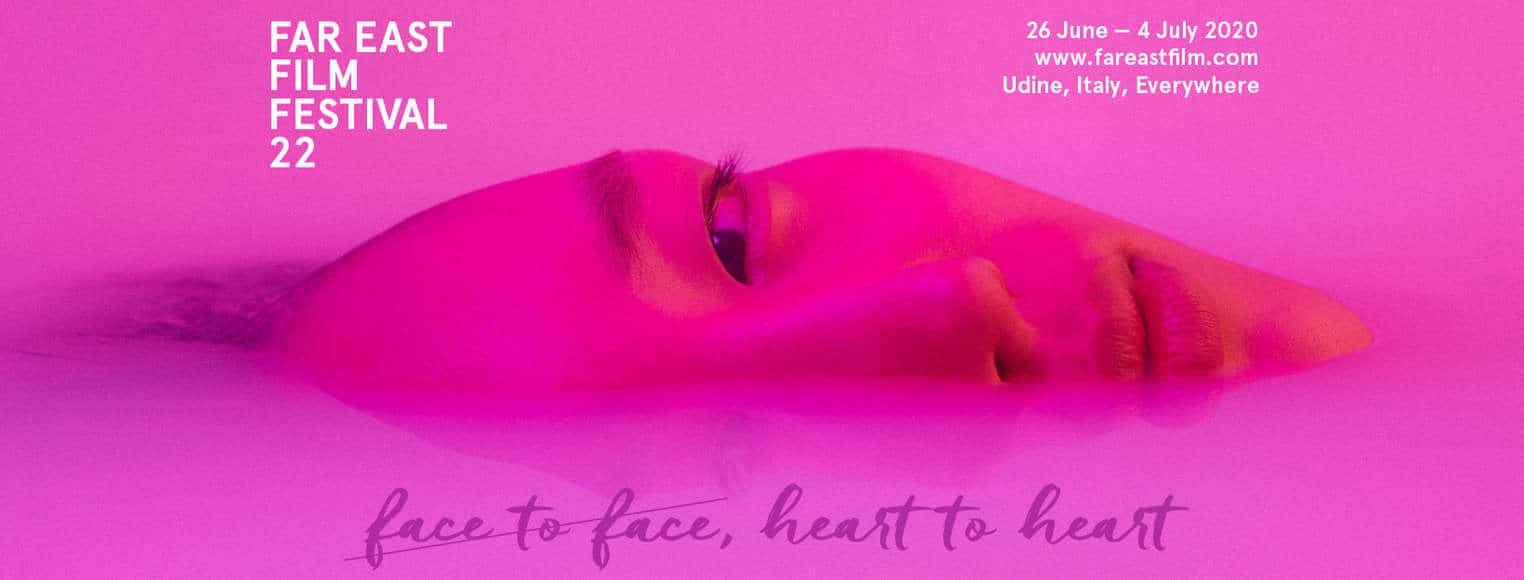
Roxy Simons of easternKicks and Matthew Scott with his students of the Far East Festival Campus were also present in the interview.
From what I understand, the book “Namsanui Bujangdeul” is a non-fiction book published as a regular column in a newspaper. How hard was it to adapt that for the screen and what was your process behind it?
First of all, thank you for your interest in my film and for gathering here digitally due to COVID-19. It is such an honour to participate in this interview. As for your question, the most difficult thing about taking a book and also the Korean history from the 60s to the 80s is that it is a lot of information to put into a 2-hour long film. So that was one of the main difficulties. Because we had so much information to contain into the film, I even thought about making it into a three-part series and I was greedy about doing that but it was not as easy as I had hoped. So I decided to just focus on the last part of where the KCIA came to an end.
What we know about what happened in the motivations behind the assassination is still evolving, I suppose. How did you and Lee Byung-hun research the character of Kim and his motivations for the assassination?
The main reason why I decided to do this film in the first place is because I was curious as to why Kim decided to assassinate the President. This is actually still left as a mystery in Korean history as to why it happened. Some people think it happened because of a power struggle, others think it was a pressure that was forced by the stakes, others think it was for democracy and yet others think it could be due to emotions caused by trust and betrayal among the others. When I spoke with Lee Byung-hun, we discussed that we shouldn't define one answer as to why it happened. We should leave the mystery as it is and we thought it would be great to have the audience find the answers themselves while watching the film. This film was released in Korea not too long ago in January and of course it was impacted by the corona virus, but in any case, this case is very famous in Korea and I wondered how the Korean audience would find their own reasons to why the assassination happened. However, what I'm also interested in is about how foreign audiences look at this question and so I would like to ask you who asked me this question what you thought the reason behind this assassination was.
I think that perhaps Kim thought he was next in line and that that was definitely a part of what his mental makeup was. Also, I think that he thought there was time to stop what was happening and I think it is historically correct that he was against the moves to gun down the protestors in Busan, which must have taken enormous courage given how autocratic President Park was and how many sycophants he had around him who would have (and probably did) threatened his life.
Thank you for your answer. It was very interesting for me. What I didn't want to do was give one definite answer. I wanted to leave it open-ended. There's one thing that the judge (presiding over the case) said that is very important to know is that the assassination seemed too improvised to be planned and it seemed too planned to be an improvisation. So it was hard to define the case and motives in one specific way.
I really liked how well you build tension in this film, particularly in the scenes leading up to the assassination. Was it challenging for you to keep the audiences on the edge of their seats, specially when the story is based on historical events so everyone already knows where the film is leading?
Like you said, we already know what's going to happen, so it was very difficult to do a tension build-up. Although we know what happened, what we do not know are the character's psychological state and relationships and their inner turmoil in detail. So I tried to focus on those aspects. Instead of showing their emotions directly, I thought it would be important to play hard-to-get with the audience. Instead of being so upfront about what the characters are thinking, why they are acting the way they are or their state of emotion, I was very focused on the importance of splitting between what to show and what not to show and creating that atmosphere. I thought not showing everything would work better, so that's why I tried to shoot as minimal as possible and I referenced to the works of directors Bernardo Bertolucci and Jean-Pierre Melville for this.
Why the changes in names when the story is clearly based on a well-known true story and real-life characters that everyone is aware of?
The bigger case is factual and one that people know already, but the details in between, for example the characters' psychological states, were fabricated for cinematic purposes, so if we were to use actual names, it could kind of bring upon pressure. I didn't want this historical case to remain a historical story. I wanted it to expand cinematically and I believe that such events happen around us in reality now and I feel that these feelings are something we can still feel amongst our colleagues and friends as well.
Kim Kyu-pyeong comes off almost as a Shakespearean hero in a Shakespearean tragedy, which is further enhanced by the mention of “Othello” in his conversation with Park Yong-gak and the reference to Iago. Was this a particular reference point for you while writing the character?
Yes, I definitely reference Shakespeare's “Hamlet” when I was creating the character of Kim because he is always thinking, always torn and agonising and has a hard time making decisions as well, decisions which end up leading him to a very tragic end.
What was your research process for this movie, apart from the source novel?
This event is so famous that almost everyone in Korea knows about it from history, of course, but also from (the movie) “The President's Last Bang” by Im Sang-soo and there's also a K-Drama series on the same subject televised on MBC, one of the largest Korean TV channels. In terms of filmic style, like I mentioned before, I was influenced by Bertolucci's “The Conformist” and Jean-Pierre Melville films.
You filmed both in Paris and Washington DC. I imagine it was quite a challenge to get commission to film in those locations and I wondered how you went about making sure you could film there.
As you already assume, it was very difficult to get permission to shoot at both the places, the Memorial Park in Washington and the Place Vendome in Paris. First of all, I think that the huge interest in Korean cinema played a part and in addition, these historical events actually happened at those places so they were curious about it too. So that's how we were able to get permission. One thing I want to mention is that as far as Place Vendome is concerned, they haven't allowed any film to shoot there. This film is the first one to shoot there. Not even French productions have been given permission to shoot there.
The single tracking shot following the climactic dinner scene was excellent, adding to the franticness of the events. How did you come up with the idea to shoot it as such and what were your instructions to cinematographer Go Nak-sun regarding it?
The final assassination was one-scene, one-take. I wanted the audience to feel like they were at that location at that moment in history to personally experience those events as an onlooker. That kind of effect was what I was going for and that is why I decided not to cut the scene and to do a one-cut scene. We actually shot this five times and used CG to make it look like one-take. So the cinematographer and I worked together to make this effect in the best way possible.
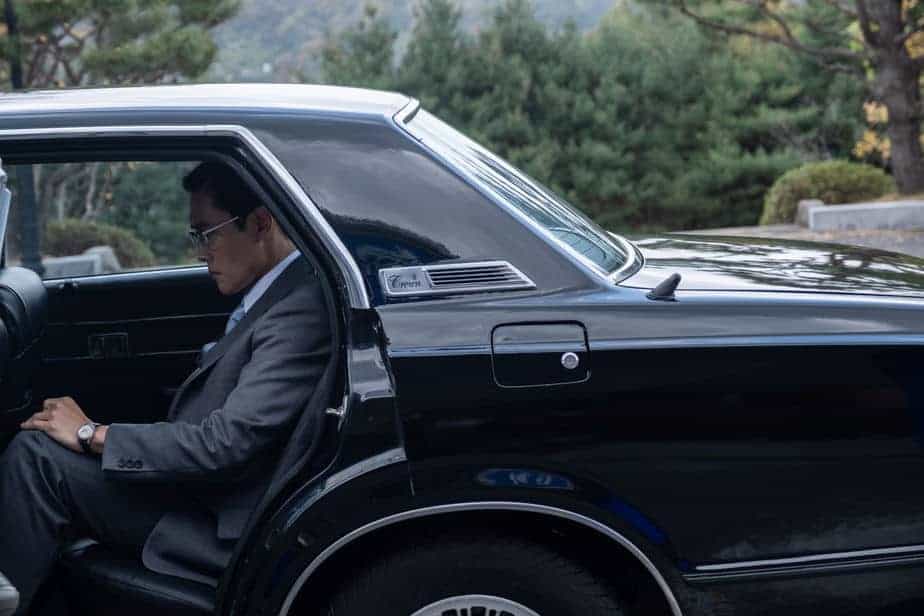
This is your second film with Lee Byung-hun and his performances in both your films, for me, are among his best. Can you tell us a bit about your working relationship with him?
I want to thank you for saying that you found his performances in my two films excellent. Since it is my second film with him, I felt more comfortable being with him and we were able to be more honest on set and were able to talk a lot. Lee Byung-hun is an actor who has a very strong character, personality and style. So what I focused on was changing his look in both my films. Starting with his hairstyle, I wanted to choose something he hadn't done before. Instead of him being Lee Byung-hun the actor, I want him to look like the character. Lee Byung-hun told me that whenever he works with me, he is always nervous and curious at the same time about what kind of new hairstyle I am going to make him do. This might be the case for other directors as well, but I think I have a compulsion to change the hairstyle of my actors and give a change to them that ways. I would never allow an actor to have the same hairstyle they had in another film (laughs).
You said “The Man Standing Next” is the end of a loose trilogy starting with “Inside Men” and “The Drug King”. Would you like to elaborate a bit more on why you think it is a trilogy?
Actually, I wasn't the one who called it a trilogy. Some reporters said that, so I don't know if I can say that it's a trilogy. It is possible that I might deal with this kind of a theme again or I might not; I don't know yet. But I am always interested in themes like desires and power and how people end up ruined in the end because of them. So I want to dig even deeper into into those themes.
When I was researching the film, I noticed that Kim's family are trying to get the case reopened at the present time. What is your take on that and what do you think they are trying to achieve, given the fact that these events did happen and he did commit the crime?
I also heard the news. In any case, historically he is actually a loser, not a winner. For a long time, he has been considered as the antagonist. But with the passing of generations, he has been given a new kind of evaluation and people have a new view of him so I think it's actually a good thing that this is happening. History, for me, highlights those who win and that's who you remember but this time I wanted to shine the light on the losing team.
We heard recently that the Korean people, in some way, support President Park as a historical figure, saying he did very good for the people and that they still like him. Is that correct?
Even now, it is true that there are supporters of President Park. I don't know the exact percentage, but the reason that there are split views of him is because what he did for the country is pretty clear, both the rights and the wrongs. So that's why some people support him and some do not.
In making this film, did you come closer to understanding Kim and making the decision yourself about why he did what he did or is it still a mystery to you?
This is a great question. I've done many interviews and actually this question was asked many times before as well, but I have not yet given a clear answer to date for the sole reason that I wanted it to be left as a mystery.


